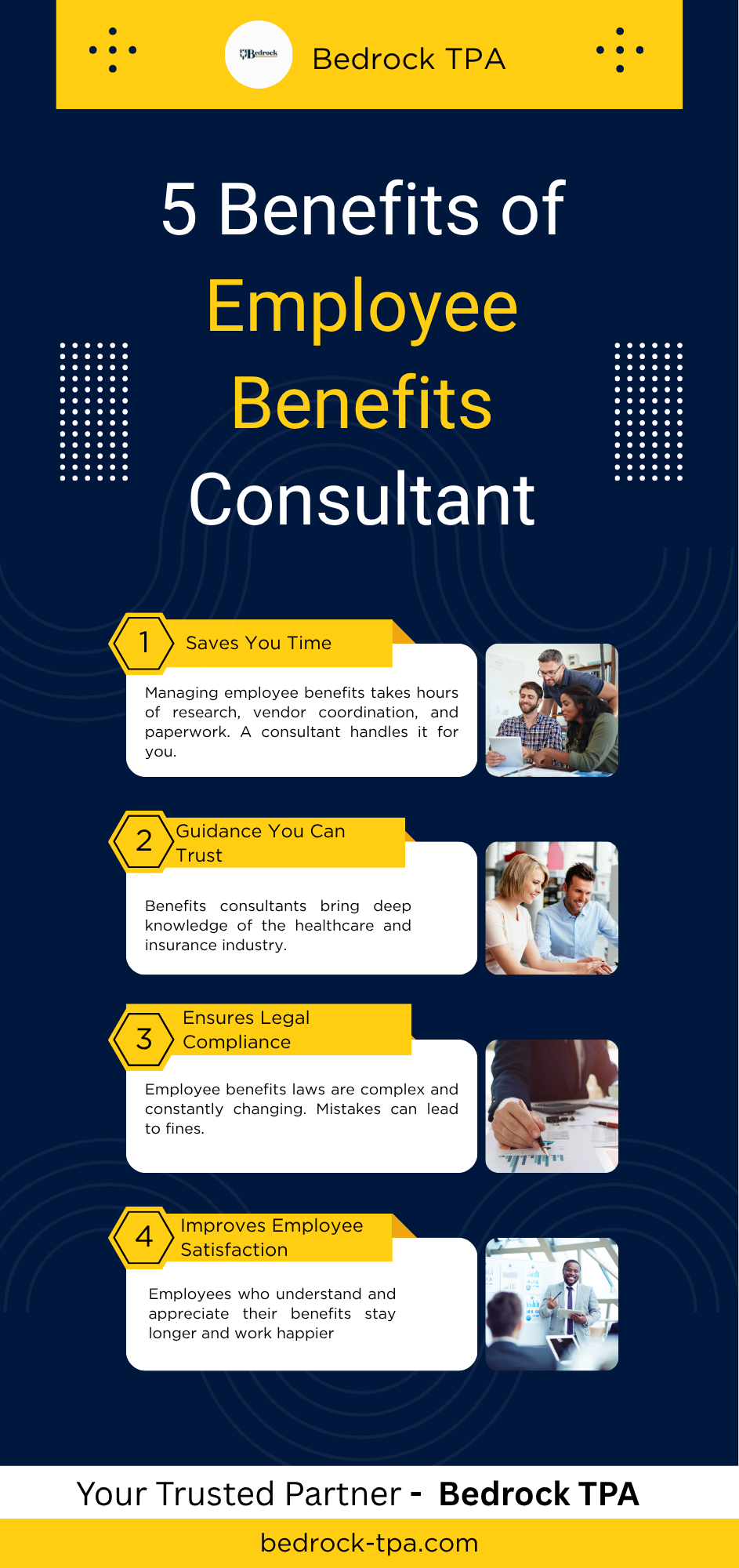
By Jean Elize, Workers’ Compensation Compliance Specialist at Bedrock TPA
Introduction
Navigating California’s workers’ compensation system is no easy feat. With strict regulations, ever-changing compliance requirements, and the need to balance employee care with cost control, employers often find themselves overwhelmed. That’s where Third Party Administrators (TPAs) in California step in—offering specialized support to manage workers’ comp claims from start to finish.
In this blog, we’ll break down how TPAs operate within California’s unique regulatory environment, the value they bring to employers, and why choosing the right TPA partner can make or break your workers’ comp strategy.
What Is a TPA and Why They Matter in California Workers’ Comp
Third party administrators (TPAs) are independent firms hired by self-insured employers or insurance companies to handle claims administration. In California, they play a critical role in managing workers’ compensation claims, which are governed by some of the strictest labor laws in the U.S.
Key responsibilities of TPAs in California workers’ comp:
Investigating and managing employee injury claims
Communicating with physicians, injured workers, attorneys, and employers
Ensuring compliance with California Division of Workers’ Compensation (DWC)
Managing claim reserves and processing payments
Preparing reports and documentation for audits or legal review
Understanding California’s Regulatory Landscape
California employers must adhere to Labor Code Section 3700, which mandates that all employers carry workers’ compensation insurance. For those who self-insure, using a certified TPA is often a legal and practical necessity.
What Makes California Unique:
Utilization Review (UR) and Independent Medical Review (IMR) are state-mandated processes (source).
Frequent audits by the Office of Self-Insurance Plans (OSIP).
Strict timelines for claims acceptance or denial.
High litigation rates compared to other states.
Experienced TPAs in California understand these intricacies and ensure claims are handled according to both legal standards and best practices.
Step-by-Step: How TPAs Manage Workers’ Comp Claims in California
Here’s how a reputable California TPA typically handles a workers’ comp claim:
1. Immediate Injury Reporting
The process starts with quick intake of the injury report. TPAs set up hotlines or digital portals to streamline reporting and ensure timely documentation.
2. Claim Investigation
TPAs coordinate with the injured employee, employer, and medical professionals to gather necessary evidence. In disputed cases, they may also liaise with legal counsel.
3. Compliance with State Guidelines
All documentation must meet the requirements set by the California DWC. Missed deadlines can result in significant penalties, which TPAs help avoid.
4. Medical Management
Some TPAs offer nurse case management or connect with Medical Provider Networks (MPNs) to ensure quality care and manage treatment costs.
5. Litigation Support
In high-conflict cases, TPAs prepare documents for legal defense and coordinate with employer-appointed attorneys.
6. Return-to-Work Coordination
A good TPA doesn’t just close claims—they help injured employees return to work faster, which reduces experience modification rates (X-Mods) and future premiums.
Real Case Example: Lowering Claim Costs for a California Manufacturer
Challenge: A mid-sized auto parts manufacturer in Southern California was experiencing rising workers’ comp costs and prolonged claim durations.
Solution: After partnering with Bedrock TPA, a comprehensive audit identified delayed reporting and a lack of return-to-work planning. The TPA implemented a digital claim intake system and assigned a dedicated nurse case manager.
Outcome: Claim duration dropped by 28%, litigation rates were cut in half, and the company’s X-Mod decreased from 1.41 to 1.07 in under 18 months.
Benefits of Using a TPA for Workers’ Comp in California
Hiring a third party administrator in California can help employers:
Ensure Compliance
TPAs keep you aligned with ever-evolving state laws, audit prep, and reporting.
Reduce Claim Costs
Expert claim handling, early intervention, and fraud detection keep losses minimal.
Improve Employee Experience
Faster resolution, proper medical care, and empathetic communication reduce friction.
Save Time for HR Teams
TPAs act as an extension of your HR department—handling time-consuming administrative tasks.
Minimize Legal Exposure
Experienced TPAs know how to avoid common pitfalls that can trigger lawsuits or penalties.
How to Choose the Right TPA in California
When evaluating third party administrators in California, look for:
OSIP certification and DWC compliance
Proven experience in your industry (e.g., manufacturing, healthcare, logistics)
In-house claims examiners and access to MPNs or nurse case managers
Secure claims software and customizable reporting tools
Positive testimonials and references from similar employers
Why Bedrock TPA Stands Out
At Bedrock TPA, we specialize in California workers’ compensation administration for self-insured employers. With decades of combined experience, our licensed claims professionals understand the nuances of state law and bring a proactive, compliance-first approach to claims management.
We don’t just process paperwork—we protect your bottom line while making sure your injured employees get the care they need.
Learn more about Bedrock TPA’s services .
Final Thoughts
California’s workers’ compensation system is complex, but managing it doesn’t have to be. With a skilled third party administrator in California, you can turn your claims process into a strategic advantage—keeping your workforce protected and your business compliant.
FAQs
Q1: Do California employers need a TPA for workers' compensation?
A: If you’re a self-insured employer, yes—California law typically requires you to work with a certified TPA to manage claims properly.
Q2: What’s the biggest benefit of using a TPA for workers' comp in California?
A: Compliance and cost control. TPAs help ensure you meet deadlines and avoid unnecessary expenses or penalties.
Q3: Can a TPA help reduce workers' comp fraud?
A: Absolutely. Many TPAs offer fraud detection tools and conduct internal investigations when red flags arise.
About the Author
Jordan Smith is a Certified Workers’ Compensation Administrator (CWCA) and Compliance Specialist at Bedrock TPA, where he helps California employers navigate complex self-insured programs. With over 12 years of experience in workers’ comp claim management, Jordan is passionate about building smarter claims processes that support both businesses and their employees.
Bedrock TPA is a licensed third party administrator based in California, serving clients across industries including healthcare, construction, logistics, and education.
📍 Address: 1234 Mission Blvd, Los Angeles, CA 90001
📞 Phone: (800) 123‑4567
🌐 www.bedrocktpa.com




Write a comment ...